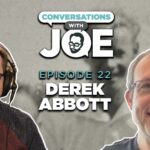
Many bilinguals report “feeling less” in their second language; it does not bear the same emotional weight as your native language.
Feeling less emotionally connected to your second language might make it easier to use highly emotional vocabulary, which is precisely what I was experiencing with my ease of swearing and talking about sensitive topics in English.
The scientific term for this is reduced emotional resonance of language. It is a fairly well-established phenomenon, but many specific questions still remain unanswered.
For example, what exactly makes one’s second language less emotional? How does this affect different immigrant communities?
This research project aims to address these questions by looking into the reasons and implications of reduced emotional resonance in bilinguals’ second language.
It is still unclear what exactly shapes emotional resonance of a language and in what way – results thus far have been inconclusive.
In the first part of my project, we are exploring which factors in a person’s language background contribute to reduced emotional resonance.
For example, is it influenced by the age at which you have learnt your second language? Does it matter how frequently and in which context you use the language?
Or is your emotional experience of a language predictable from whether you dream or can do maths in it?

To investigate these questions, my project uses eye-tracker technology in order to measure bilinguals’ pupil responses to emotional words in English.
Typically, when shown highly emotional words or pictures, people’s pupils dilate as a non-controllable, emotional reaction.
Previous research has shown the effect is smaller in bilinguals’ second language, which suggests reduced emotional resonance.
Understanding the reasons for why this happens can, in turn, help us explain how you experience a foreign language community, and how this could be taken into account in acculturation and adaptation.

However, not all the implications of reduced emotional resonance are negative – bilinguals can actually benefit from being able to approach things in a less emotionally involved way.
For example, bilinguals have been shown to be able to make more rational decisions in their second language.
Also, switching languages can be used as a tool in therapy when working through emotionally difficult or traumatising experiences.
Imagine how it would be if it were easier to talk about your emotions with your partner – maybe bilingual couples have a communicative advantage?
Ultimately, understanding the full scale of implications of reduced emotional resonance is a way to understand how bilinguals experience the world.
Please like, share and tweet this article.
Pass it on: Popular Science










